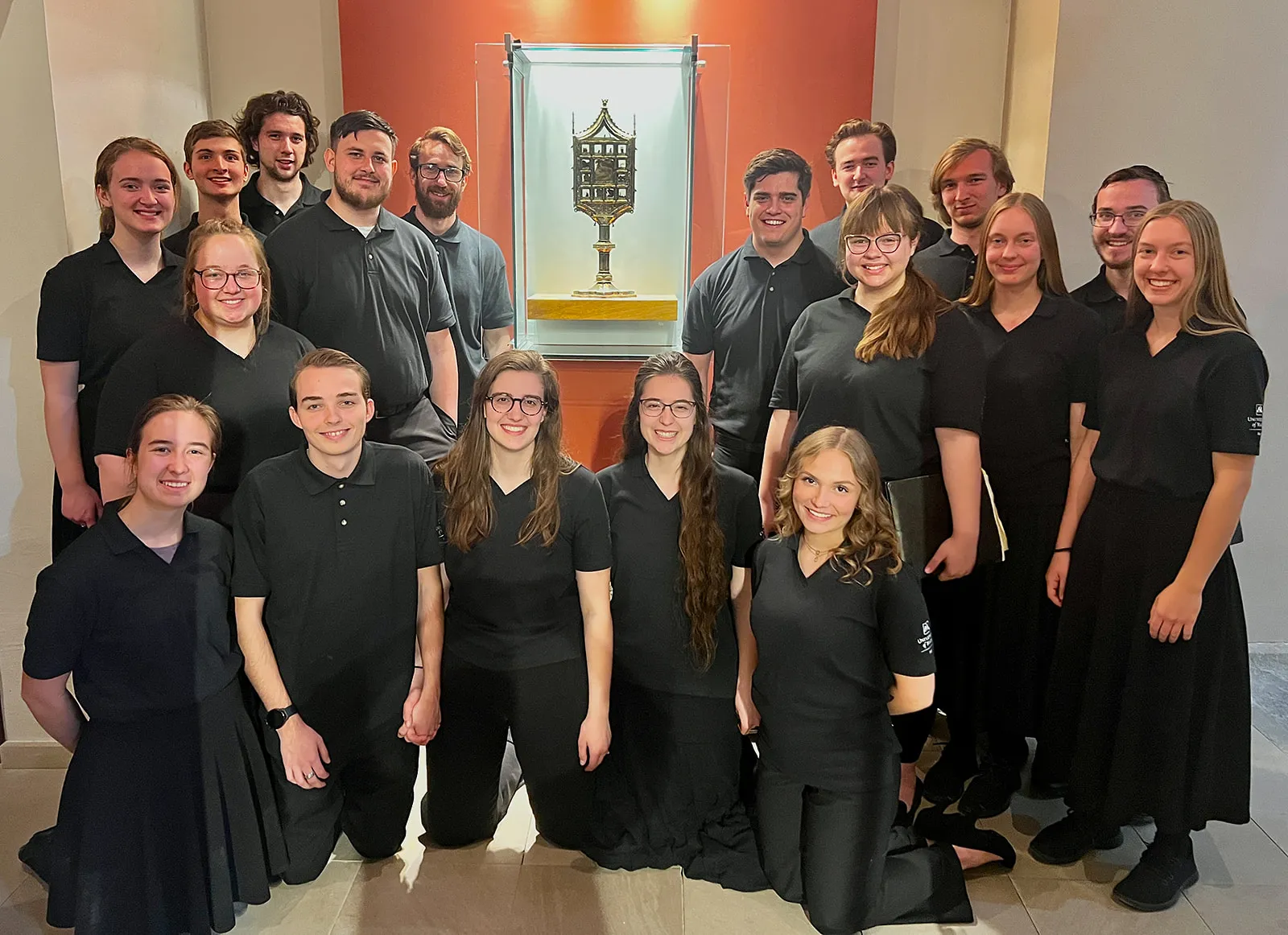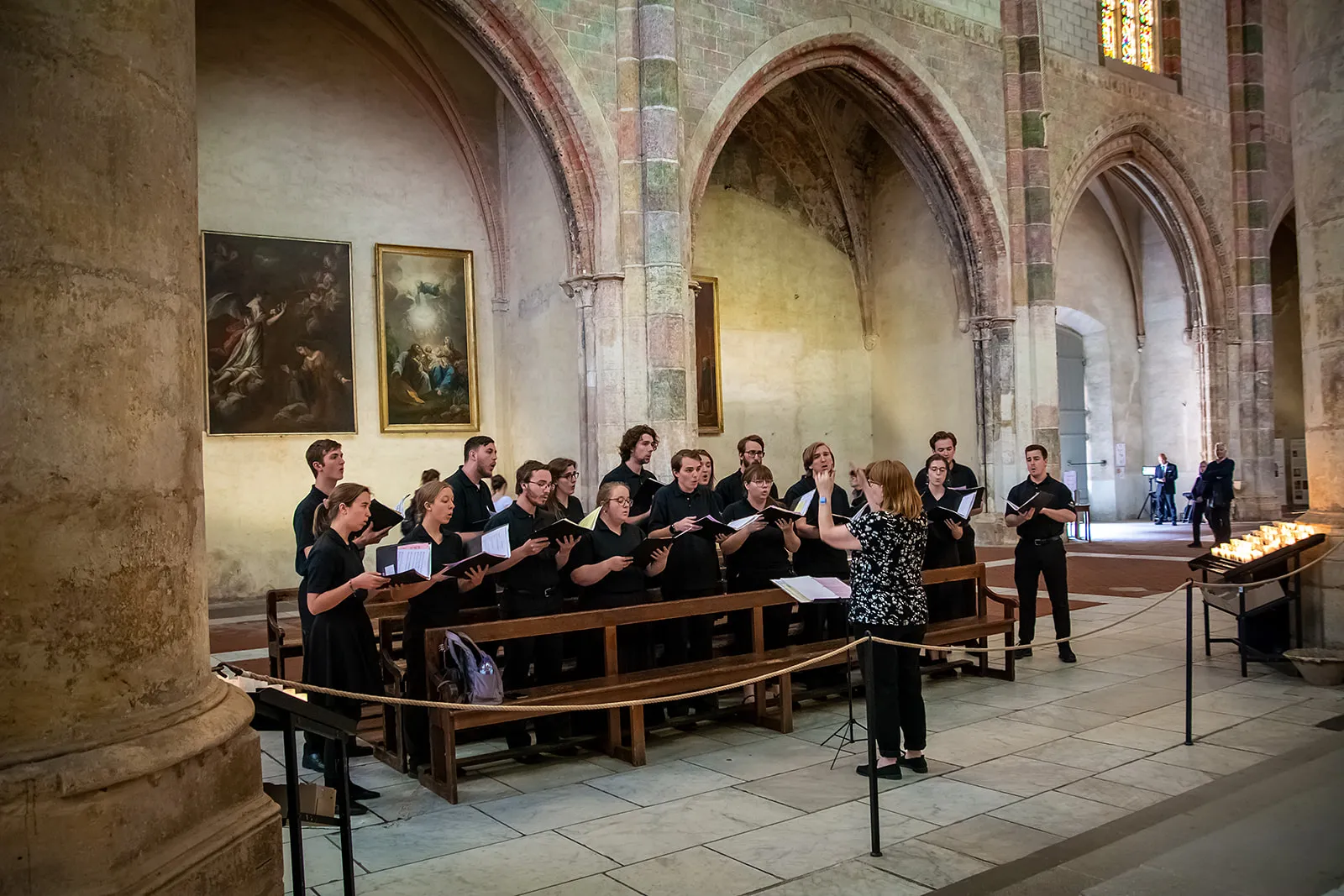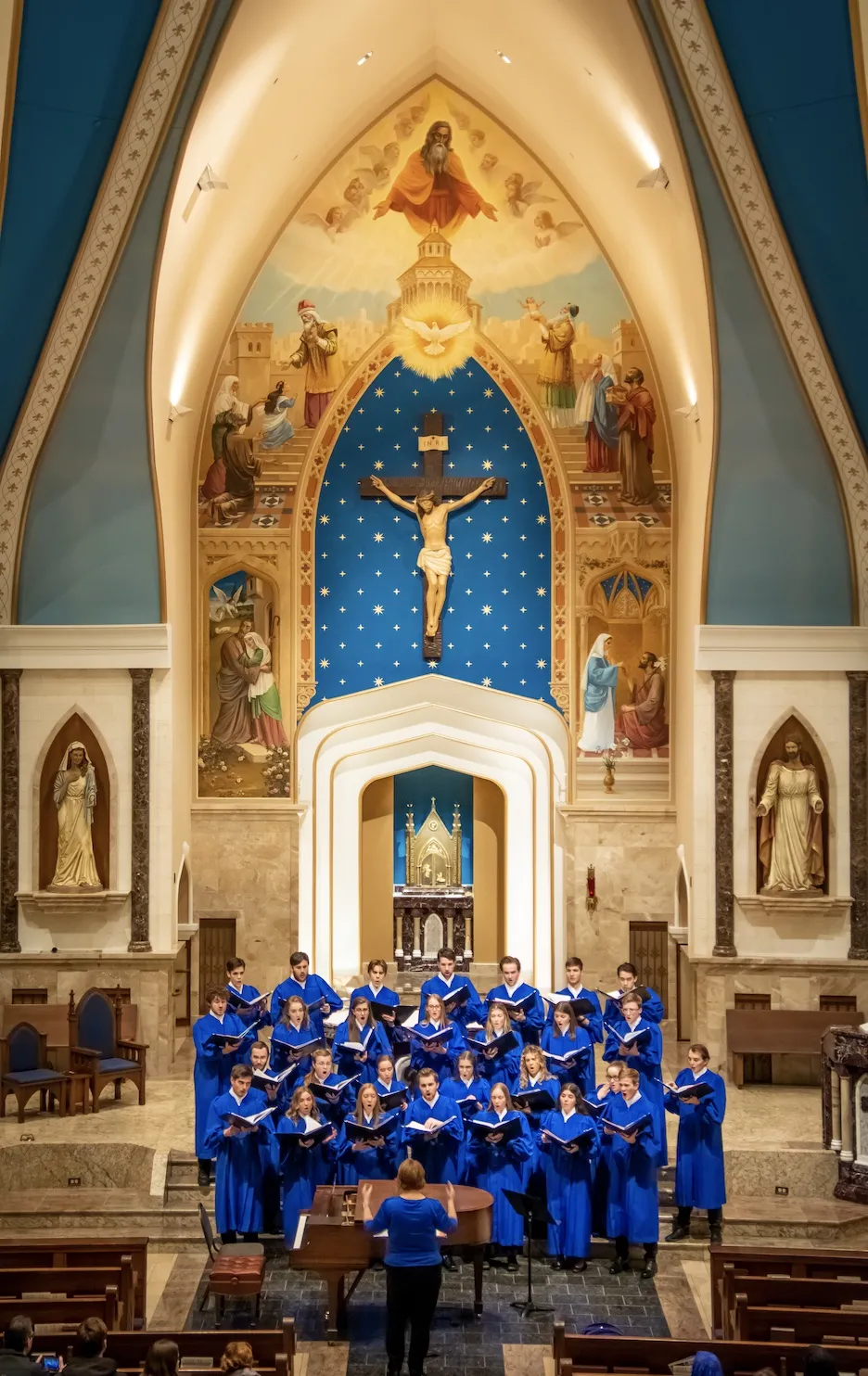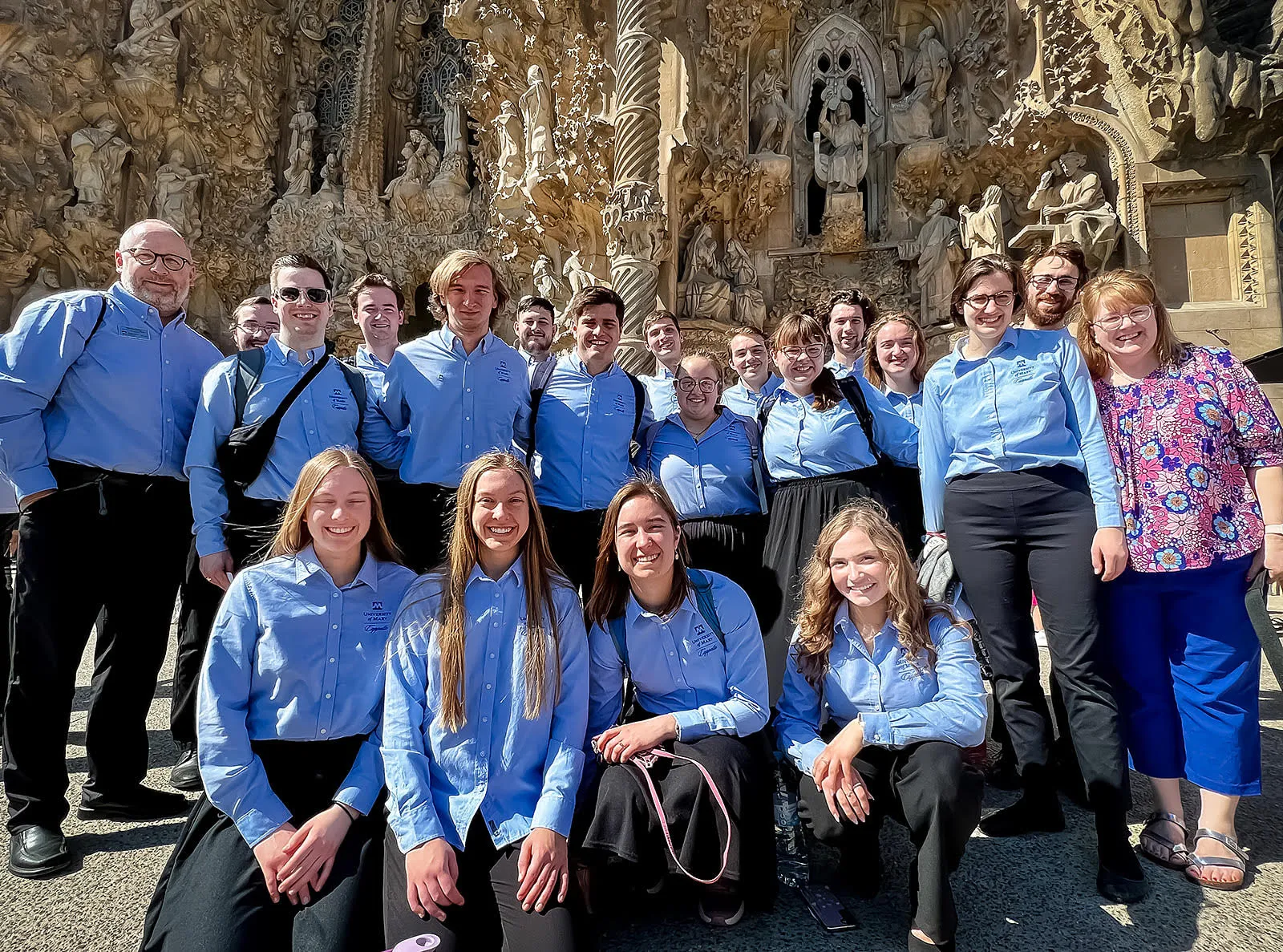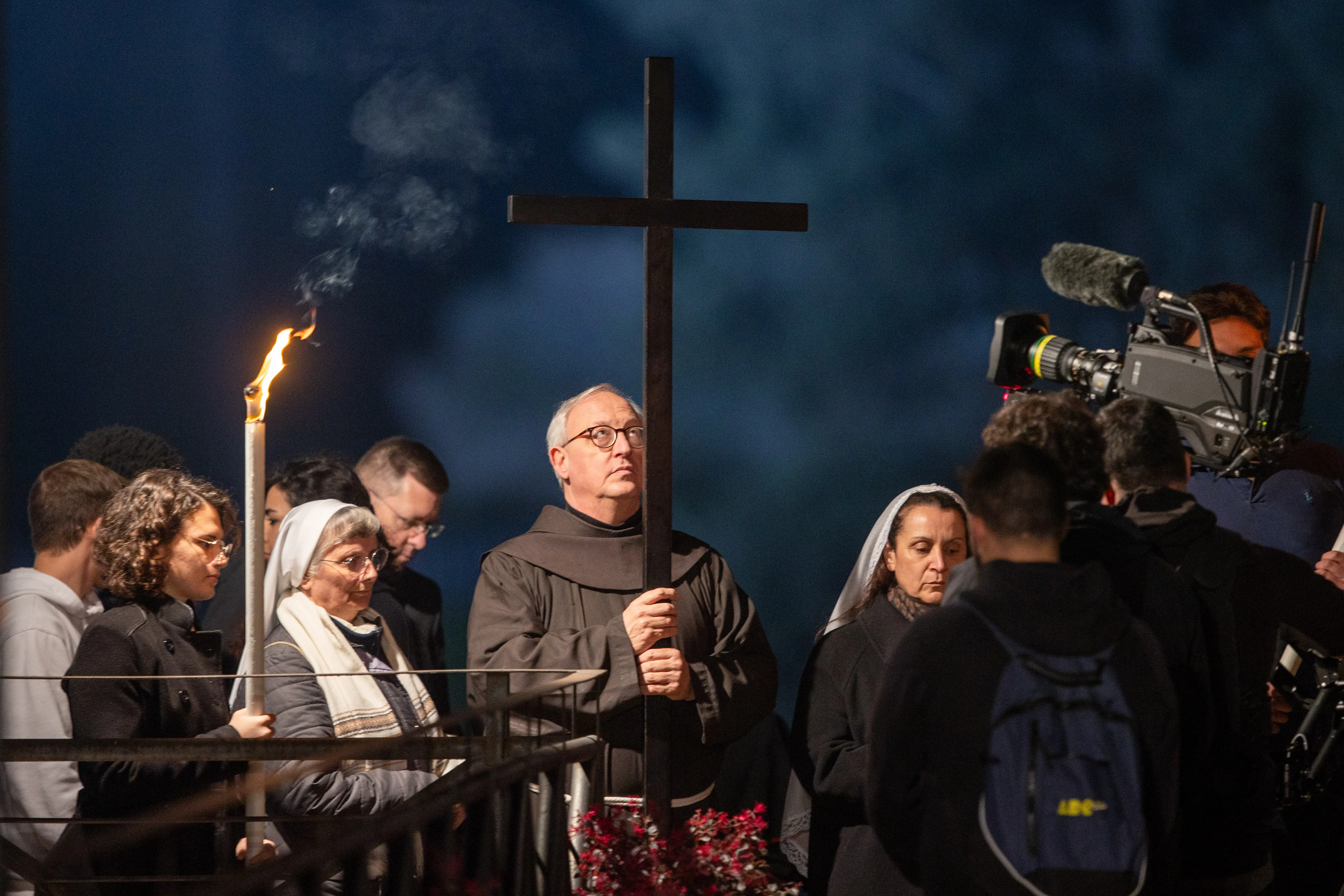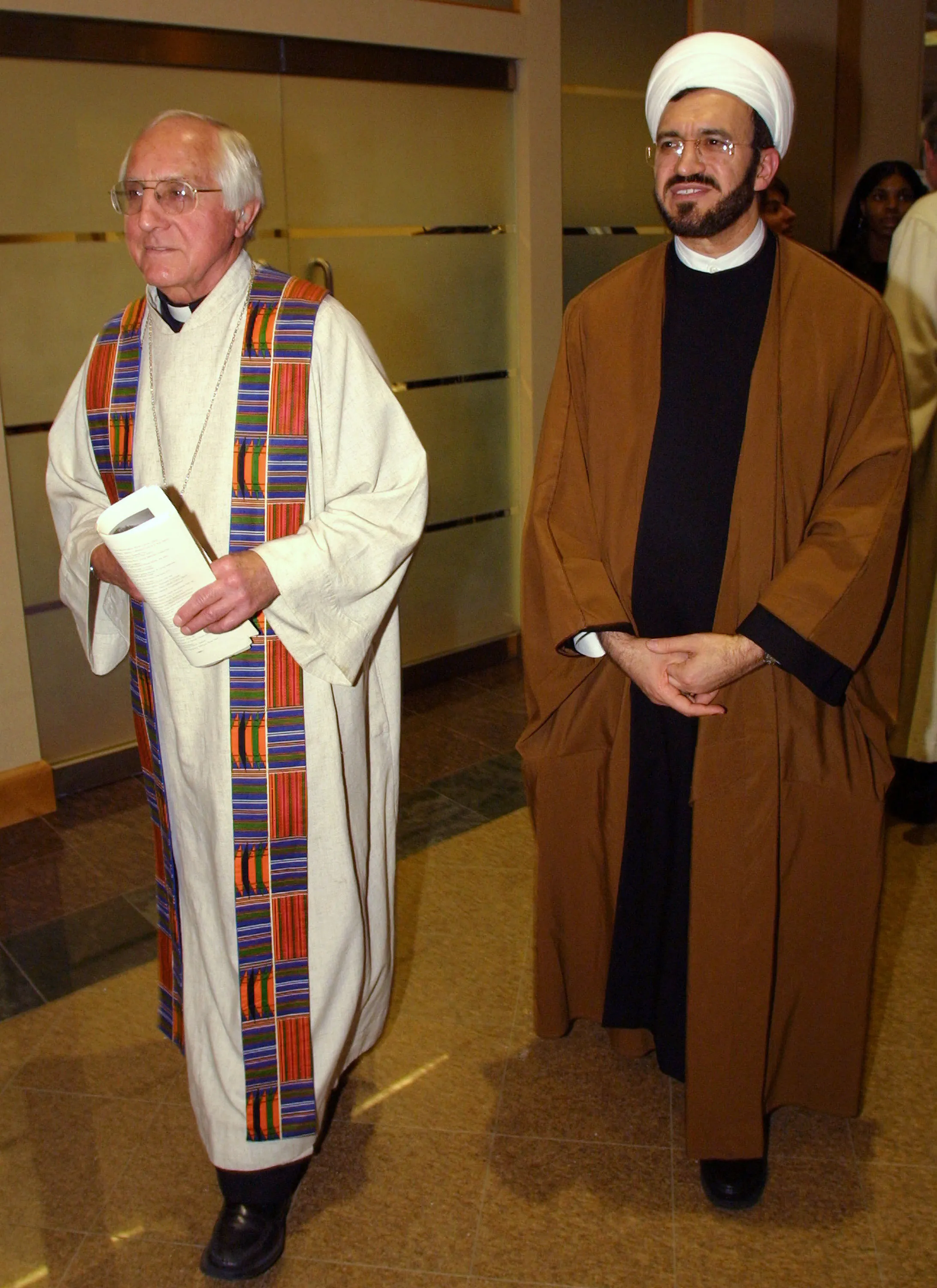 Image of the Divine Mercy. / Credit: EWTN News In Depth
Image of the Divine Mercy. / Credit: EWTN News In Depth
ACI Prensa Staff, Apr 7, 2024 / 10:10 am (CNA).
The feast of divine mercy is celebrated on the Second Sunday of Easter and is associated with the prayer of the Divine Mercy Chaplet, a pious practice revealed to St. Maria Faustina Kowalska by Jesus himself that has spread throughout the world.
While Catholics are not required to believe private revelations, the Church often encourages the practices associated with those that she approves, such as St. Faustina's divine mercy revelations.
There are five main reasons to offer this prayer, as Inés Mery, a volunteer with the Divine Mercy Foundation's shrine in Chile, explained to ACI Prensa, CNA's Spanish-language news partner.
1. It develops an attitude of trust.
Jesus appeared to St. Faustina on Sept. 13-14, 1935, in Vilnius, Lithuania, and asked her to make his mercy known through the dissemination of an image of himself bearing the inscription "Jesus, I trust in you" that he showed to her and also through the establishment of the feast of divine mercy and the recitation of the chaplet.
People who pray this chaplet offer to God the Father "the body and blood, soul and divinity" of Jesus Christ "in atonement for our sins and those of the whole world. By joining themselves to the sacrifice of Jesus, they appeal to this love with which God the Father loves his Son and in him all people," Mery explained.
"This prayer asks for 'mercy for us and the whole world' in an attitude of trust," she added.
In this way, "by fulfilling the conditions that must characterize every good prayer (humility, perseverance, submission to the will of God), the faithful can expect the fulfillment of the promises of Christ that refer especially to the hour of death: the grace of conversion and a peaceful death," the volunteer noted.
Jesus told St. Faustina: "The souls that say this chaplet will be embraced by my mercy during their lifetime and especially at the hour of their death" ("Diary," 754) and that "by saying the chaplet you are bringing humankind closer to me" ("Diary," 929).
2. Extraordinary graces are obtained.
Jesus told St. Faustina: "My daughter, encourage souls to say the chaplet which I have given to you. It pleases me to grant everything they ask of me by saying the chaplet" ("Diary," 1541).
"Say the chaplet that I have taught you," because "through the chaplet, you will obtain everything if what you ask for is compatible with my will" ("Diary," 1731).
"The souls that say this chaplet will be embraced by my mercy during their lifetime and especially at the hour of their death" ("Diary," 754).
"At the hour of their death, I defend as my own glory every soul that will say this chaplet; or when others say it for a dying person, the indulgence is the same. When this chaplet is said by the bedside of a dying person, God's anger is placated, unfathomable mercy envelops the soul, and the very depths of my tender mercy are moved for the sake of the sorrowful passion of my Son" ("Diary," 811).
"Even if there were a sinner most hardened, if he were to recite this chaplet only once, he would receive grace from my infinite mercy" ("Diary," 687), Jesus promised.
3. It's a personal and community prayer.
The chaplet is intended to be prayed both in community and individually.
Thus "saying 'we' refers both to the person who prays the chaplet and to all those for whom it is prayed; by saying the 'whole world' we mean that we pray for both the living and the dead," Mery explained.
When reciting the Divine Mercy Chaplet, "Jesus asks us to implore mercy 'for us,' thus teaching us to combat selfishness in prayer (not praying for oneself only) and thus making the divine mercy prayer an act of sacrificial love," Mery said.
When we pray the chaplet, she explained, "we join Christ's sacrifice on the cross in which he offered himself for our salvation. When reciting the words 'Your dearly beloved Son, Our Lord Jesus Christ,' we do so by virtue of the love that God the Father has for his Son, and in him, for all men. Thus, we have recourse to the greatest reason to be heard by God."
4. It only takes five minutes.
The Divine Mercy Chaplet is prayed with a rosary. It begins with the sign of the cross and then by praying an Our Father, a Hail Mary, and the Apostles Creed.
Then at the beginning of each decade, you pray "Eternal Father, I offer you the body and blood, soul and divinity of your dearly beloved Son, Our Lord Jesus Christ, in atonement for our sins and those of the whole world."
On the Hail Mary beads, instead of reciting this prayer, you say 10 times: "For the sake of his sorrowful passion, have mercy on us and on the whole world."
At the end of the five decades, you pray three times "Holy God, Holy Mighty One, Holy Immortal One, have mercy on us and on the whole world." You can also add "O Blood and Water that gushed forth from the Heart of Jesus as a fountain of mercy for us, I trust in you," "St. Faustina, pray for us," and "St. John Paul II, pray for us."
5. You can pray at any time.
The chaplet can be prayed at any time. "Sometimes people mistakenly believe that you have to pray it at 3 p.m., but Jesus did not ask for that," Mery clarified.
"Three in the afternoon, which is the hour of great mercy, is directed to the Son, Jesus Christ, to contemplate him in his passion." On the other hand, she explained, "the chaplet is directed to God the Father."
"What can be done and is done in various divine mercy shrines is that at three in the afternoon, the passion of Christ is contemplated for a moment and then the chaplet is prayed," she explained.
"At whatever time the chaplet is prayed, the important thing," Mery noted, "is to understand that in this prayer we ask the Father to look at us through the wounds of his Son, Jesus, and so that by looking at us through the wounds of his Son, he won't treat us as our sins deserve but treat us according to his great goodness and mercy."
"I saw a great radiance and, in the midst of it, God the Father. Between this radiance and the earth I saw Jesus, nailed to the cross in such a way that when God wanted to look at the earth, he had to look through the wounds of Jesus. And I understood that it was for the sake of Jesus that God blesses the earth," St. Faustina wrote ("Diary," 60).
This story was first published by ACI Prensa, CNA's Spanish-language news partner. It has been translated and adapted by CNA.



